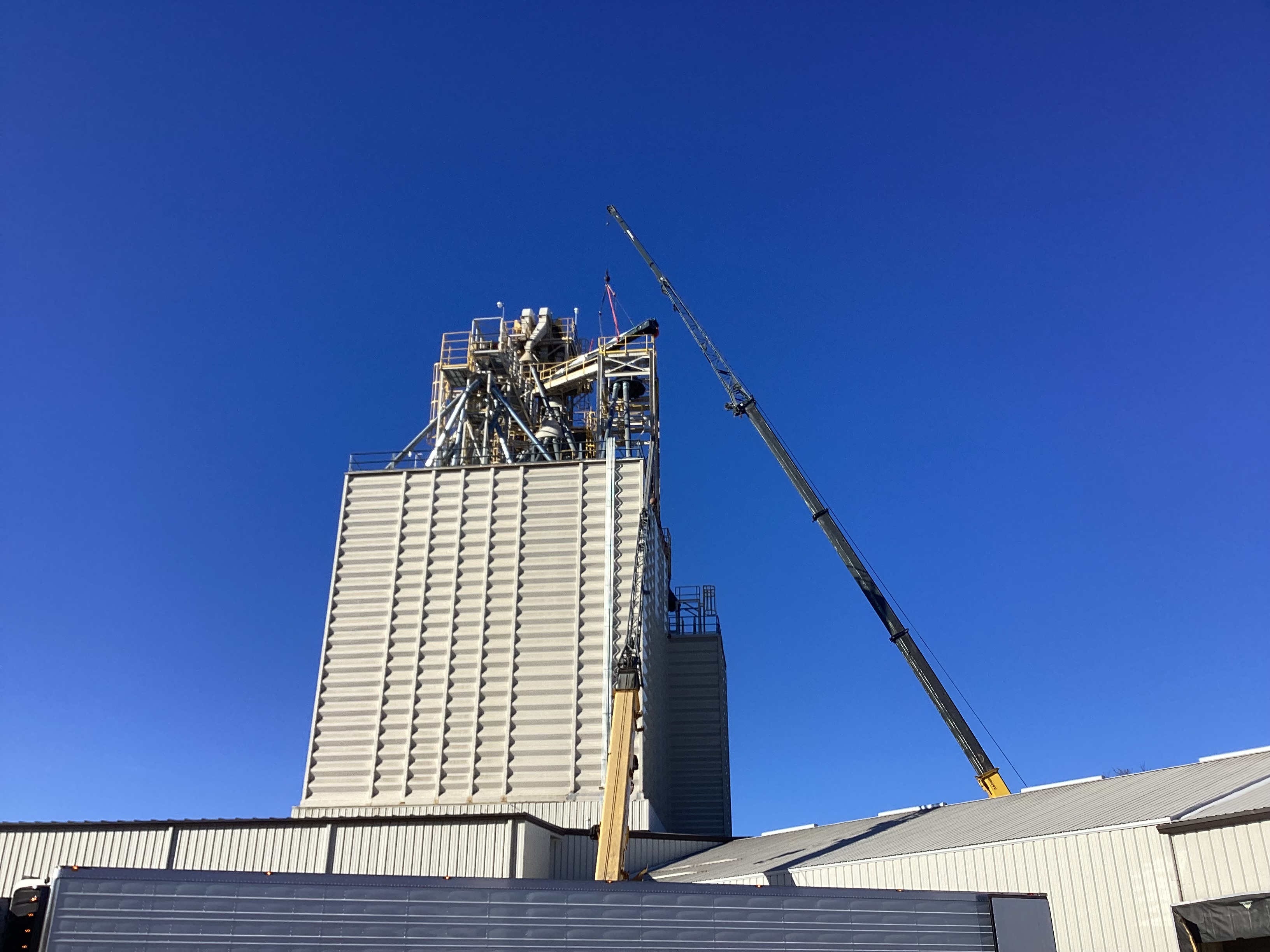Making Investments to Improve Value on Your Farm
Dec 14, 2023

By John Scheuers, Vice President of Feed
United Cooperative continues to make investments in our Feed Division to be able to add more value at your farm gate. Currently, we are about a month away from the completion of our Wilton expansion. In Wilton, we are adding 9 additional bulk ingredient bins and 8 additional semi loadout bins. This will give us the ability to handle more bulk ingredients at Wilton versus using these ingredients in bags. Bulk ingredients help save money and allow us to become more labor-efficient.
Our new feed mill expansion in Waupun continues to make good progress. The feed mixers, pelleter, steam flaker, texturized feed mixers, and high-speed roller grinders have all been installed. The office by Wilson Drive is complete and we currently are finishing the warehouse that is attached to the mill. We hope to have the wiring completed in April/May of 2024 and start production in June of 2024.
 These expansions are all about adding more value at your farm gate. Improved Quality control, better labor efficiencies, and better working conditions for our feed teams, while providing you the great service that you have become accustomed to. These additions will allow us to buy in higher volumes, more direct purchases, and more bulk versus bagged feed ingredients all adding more cost-effective ways to do business. We look forward to getting these two projects working for you.
These expansions are all about adding more value at your farm gate. Improved Quality control, better labor efficiencies, and better working conditions for our feed teams, while providing you the great service that you have become accustomed to. These additions will allow us to buy in higher volumes, more direct purchases, and more bulk versus bagged feed ingredients all adding more cost-effective ways to do business. We look forward to getting these two projects working for you.
United Cooperative continues to make investments in our Feed Division to be able to add more value at your farm gate. Currently, we are about a month away from the completion of our Wilton expansion. In Wilton, we are adding 9 additional bulk ingredient bins and 8 additional semi loadout bins. This will give us the ability to handle more bulk ingredients at Wilton versus using these ingredients in bags. Bulk ingredients help save money and allow us to become more labor-efficient.
Our new feed mill expansion in Waupun continues to make good progress. The feed mixers, pelleter, steam flaker, texturized feed mixers, and high-speed roller grinders have all been installed. The office by Wilson Drive is complete and we currently are finishing the warehouse that is attached to the mill. We hope to have the wiring completed in April/May of 2024 and start production in June of 2024.
 These expansions are all about adding more value at your farm gate. Improved Quality control, better labor efficiencies, and better working conditions for our feed teams, while providing you the great service that you have become accustomed to. These additions will allow us to buy in higher volumes, more direct purchases, and more bulk versus bagged feed ingredients all adding more cost-effective ways to do business. We look forward to getting these two projects working for you.
These expansions are all about adding more value at your farm gate. Improved Quality control, better labor efficiencies, and better working conditions for our feed teams, while providing you the great service that you have become accustomed to. These additions will allow us to buy in higher volumes, more direct purchases, and more bulk versus bagged feed ingredients all adding more cost-effective ways to do business. We look forward to getting these two projects working for you.